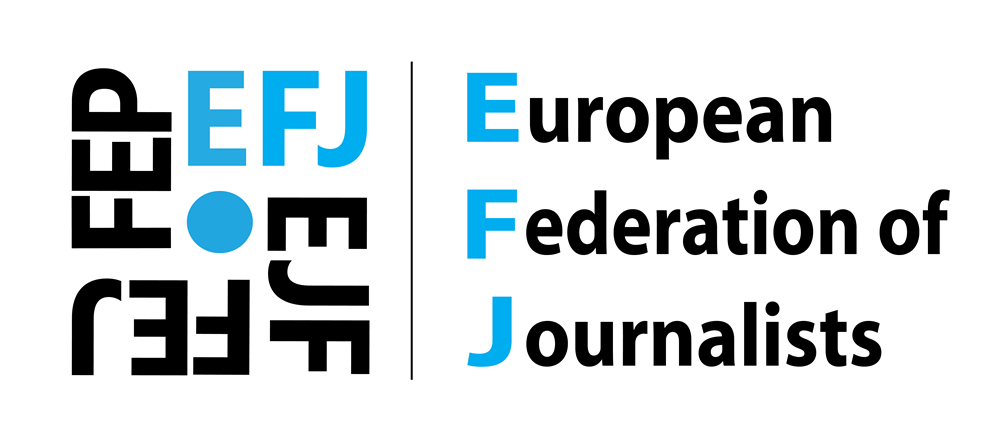Un asa zis raport al Ministerului de Interne din Germania este noua manipulare preluata pe nerasuflate de mass media din Romania. O ciorba ieftina, reincalizita, din luna Mai, dezmintita deja de oficialii de la Berlin.
Agentii de presa, pagini de net, televiziuni din Romania – toate au citat o stire a unei agentii de presa, plina de inexactitati in care se spunea, pe scurt, ca Ministerul de Interne din Germania considera exgerate masurile de alerta impotriva noului coronavirus.
In ce consta stirea falsa ne explica www.healthfeedback.org :
German Ministry employee makes unsupported claim that COVID-19 pandemic is a global false alarm in widely circulated yet unsolicited opinion article
The document in question was not leaked from Germany’s Interior Ministry, nor was it solicited or prepared by any unit of the Interior Ministry.
The document represents the private opinion of a single ministry employee and several independent scientists who publicly disseminated it on Ministry letterhead without authorization.
The German government does not agree with the assessments presented in this personal analysis.
Stirea cu pricina nu are ca autor Ministerul de Interne din Germania, este vorba despre opinia privata a unui angajat, Ministerul de Interne de la Berlin se delimiteaza de astfel de idei exprimate de unele persoane particulare.
Detalii despre cum a fost construit un fake news de proportii :
An article posted by News Punch on 2 June 2020 partially reproduces a document originally published by the German outlet Tichys Einblick on 10 May 2020, claiming that it was leaked from Germany’s Interior Ministry. The document, titled KM 4 Analysis of Crisis Management, claims that “the corona crisis is proving to be a false alarm”. In the last few weeks, the document’s critique of the German government’s response to the COVID-19 pandemic has spread through German media as well as international and social media outlets.
The author of the document is Stephan Kohn, a politologist and employee of Germany’s Interior Ministry in the KM 4 department for the Protection of Critical Infrastructures. However, Kohn’s analysis was not requested by the Interior Ministry, as the article claims. On 10 May, Germany’s Interior Ministry issued a press release stating that the employee had disseminated his “private opinion on the corona crisis management” and that the “elaboration was carried out outside the area of responsibility as well as without assignment and authorization”.
Three days later, Federal Minister of the Interior Horst Seehofer addressed the issue in a press conference about border control measures instituted during the COVID-19 pandemic. Seehofer pointed out that “a limit has been reached” because the employee had used “the office, the infrastructure, the name [of the Interior Minister]” to distribute his view. On 14 May, German Chancellor Angela Merkel further clarified at the German Parliament that the government did not agree with the assessments presented in the document. The employee has been suspended and is now undergoing disciplinary proceedings.
The News Punch article states that “the report has been drafted by a scientific panel appointed by the Interior Ministry and composed by external medical experts”. Kohn states in his document that his analysis involved the collaboration of ten “high-ranking experts/scientists” who, on 11 May, issued a joint press release to reprimand the government for ignoring expert advice during its handling of the pandemic. However, none of the collaborators were appointed by the Interior Ministry as the article states, nor do they serve as advisors to the Ministry. Furthermore, the panel did not include any virologists or epidemiologists, and some of the members had previously criticized the government’s management of COVID-19 based on unsupported or misleading arguments. One of the collaborators is a member of the National Academy of Sciences Leopoldina, but the institution clarified that he “has never been a member of the working groups that prepared Leopoldina’s three [now four] statements on the coronavirus pandemic. He is also currently not a member of any other working group or body of the Academy”.
In an effort to demonstrate that the risk of COVID-19 has been overestimated, the News Punch article quotes several claims from Kohn’s analysis. Without providing any scientific evidence, Kohn states that “the people who die from corona are essentially those who would statistically die this year” and that “the danger is no greater than that of many other viruses”. A precise assessment of the mortality due to COVID-19 will require time and further studies, but current data from the European mortality monitoring network EuroMOMO indicate that the pandemic has caused about 170,000 excess deaths in its 24 European partner countries. The U.S. has also observed excess deaths during the pandemic peak, as Health Feedback has previously reviewed here.
According to EuroMOMO, the number of excess deaths coinciding with the COVID-19 pandemic was twice the number that occurred during the unusually deadly flu seasons of 2017, 2018, and 2019 (Figure 1). Kohn’s statement that “there have been no more than 250,000 deaths from COVID-19, compared to 1.5 million deaths, 25,100 in Germany, during the influenza wave 2017/18” is also factually inaccurate. According to data from the World Health Organization (WHO) and the U.S. Centers for Disease Control and Prevention, which led to a study published in The Lancet, seasonal influenza is associated with 290,000 to 650,000 deaths annually, depending on the season[1]. This is far below the 1.5 million deaths claimed by Kohn. In Germany, the 2017/2018 flu season killed 25,000 people.
In summary, the KM 4 Analysis of Crisis Management document was not leaked from Germany’s Interior Ministry. Instead it was the private opinion of a single Ministry employee who had solicited the input of several scientists without expertise in epidemiology or virology and then used the Ministry’s infrastructure to publicize their unsolicited and flawed analysis. The claim that the COVID-19 pandemic is a global false alarm is currently unsupported. In addition, the claim does not take into account the fact that the number of infections and deaths may have been much higher without the social distancing measures that were adopted by most countries. The most current scientific evidence suggests that the controversial lockdown policies have likely spared millions of lives by slowing transmission of COVID-19 and preventing the overloading of healthcare systems.
Comunicatul Ministerului de Interne din Germania in care se delimiteaza de opinia angajatului sau si afirma ca nu exista nici un raport al institutiei
PRESSEMITTEILUNG · 10.05.2020
Mitarbeiter des BMI verbreitet Privatmeinung zum Corona-Krisenmanagement
Ausarbeitung erfolgte außerhalb der Zuständigkeit sowie ohne Auftrag und Autorisierung
Ein Mitarbeiter des Bundesministeriums des Innern, für Bau und Heimat hat in einem mehrseitigen Dokument unter Verwendung des BMI-Briefkopfes und der dienstlichen Kommunikationskanäle seine kritische Privatmeinung zum Corona-Krisenmanagement der Bundesregierung verbreitet. Die Ausarbeitung erfolgte nach bisheriger Kenntnis auch unter Beteiligung Dritter, außerhalb des BMI.
Hierzu erklärt das Bundesministerium des Innern, für Bau und Heimat:
- Die Bundesregierung hat in Folge der Corona-Infektionsgefahren zum Schutz der Bevölkerung Maßnahmen ergriffen, um die Infektionskette im Inland und im grenzüberschreitenden Verkehr zu unterbrechen. Diese werden innerhalb der Bundesregierung fortlaufend abgewogen und regelmäßig mit den Ministerpräsidentinnen und Ministerpräsidenten der Länder abgestimmt. Viele Länder dieser Welt und die meisten Länder in Europa haben ähnliche Maßnahmen ergriffen, zum Teil gehen die Einschränkungen über die in Deutschland geltenden Regelungen hinaus. Das Infektionsgeschehen in Deutschland ist im internationalen Vergleich bislang eher niedrig. Die ergriffenen Maßnahmen wirken.
- Jeder hat das Recht, seine Meinung frei zu äußern. Dies gilt auch für Mitarbeiterinnen und Mitarbeiter des öffentlichen Dienstes, solange dies auf dem Boden der Verfassung erfolgt. Der Mitarbeiter des BMI hat seine Privatmeinung und ggf. die Meinung anderer an dem Papier Beteiligter zusammengefasst und verbreitet. Diese eigenständig vorgenommene „Analyse“ erfolgte außerhalb der sachlichen Zuständigkeit des Verfassers sowie der Organisationseinheit im BMI, für die er tätig war. Für diese Zusammenstellung gab es weder einen Auftrag, noch eine Autorisierung. Eine strukturelle Einbindung aller am Krisenstab beteiligten Organisationseinheiten, wie sonst bei seriösen Analysen zwingend erforderlich und üblich, erfolgte hier nicht.
- Es ist nicht akzeptabel und mit den allgemeinen Pflichten im öffentlichen Dienst nicht vereinbar, wenn private Meinungsäußerungen und Gedankensammlungen unter Verwendung behördlicher Symbole, z.B.: dem offizielle Briefkopf, verfasst und der Öffentlichkeit zugänglich gemacht werden. Auf diese Weise wird der Anschein erweckt, die Privatmeinung gebe die offizielle Auffassung einer Behörde wieder. Durch innerdienstliche Maßnahmen wurde zwischenzeitlich sichergestellt, dass der Verfasser des Schreibens nicht weiter den unzutreffenden Eindruck erwecken kann, er handele insoweit für oder im Namen des BMI. Die weitere Sachaufklärung erfolgt im Rahmen der dafür gegebenen Verfahren auf der Grundlage der einschlägigen Rechtsvorschriften.





